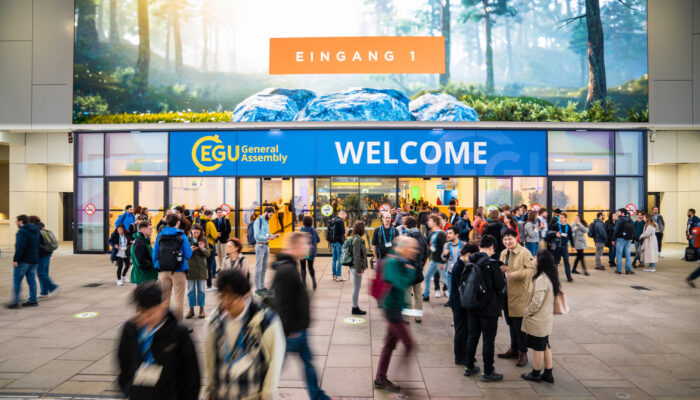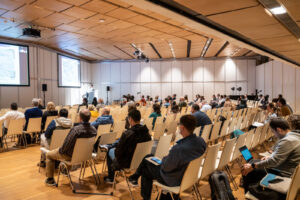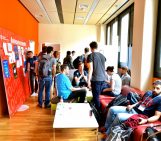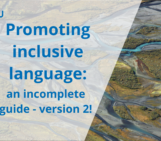
Most people know that the EGU General Assembly is Europe’s largest geoscientific conference bringing together Earth, planetary, and space scientists from all over the world. But did you know that YOU can take an active part in organising its scientific programme? From now until 14 September 2023, we are accepting proposals for scientific sessions, Union Symposia, Great Debates, and Short Courses – all for our upcoming General Assembly EGU24!
“Many don’t realise that the EGU General Assembly is a collaborative effort, led by volunteers and strongly anchored on a bottom-up approach. Guided by Programme Group chairs and officers of the different EGU scientific divisions and Programme Groups, our members contribute to building the scientific programme. This means that the community’s ideas shape the annual General Assembly: what are the scientific topics of the moment? What topics are key to bring together our research efforts and foster discussions on research advances and needs? ” explains Maria-Helena Ramos, PC Co-chair.
Contributions can be made in several ways:
- Regular scientific sessions can be proposed on any of the topics of the EGU; a session description and a convener team can be suggested following the general convener guidelines.
- Education and Outreach Sessions (EOS) and Inter- and Transdisciplinary Sessions (ITS) topics can be proposed, as well as Short Courses, which focus on providing or discussing skills and abilities related to the geosciences.
- Proposals are also open for union-wide debates and panel discussions, as every year EGU hosts a limited number of Union Symposia (US) and Great Debates (GDB).
Athanasios Nenes, PC Co-chair says: “There are many ways to get involved in the EGU General Assembly. Feedback from the community has shown that it is an amazing experience to organise a session, collect contributions, chair a discussion, etc. So anyone who has done it before or wants to do it for the first time is encouraged to step forward and propose a session. We look forward to seeing the geoscientific topics brought forward to be discussed at EGU24!”
Proposing a session is easy, just follow the steps below:
- First of all, check EGU24 Provisional Programme to discover the topics covered under each Programme Group.
- Read the convener guidelines and any other relevant guidelines to understand the rules, what to expect, and gather all the information that you will need when proposing a session.
- Contact your colleagues to assemble a convener team and draft your session description. Note that all conveners must agree to take part in the proposed session.
- Depending on your session’s topic and the type of session you are proposing, choose a suitable Programme Group for the session. Fill the form for session proposal and keep an eye on the deadlines and milestones for the next steps. If questions come up at any stage, you can contact the chair of the Programme Group where you proposed your session.
The EGU Programme Committee strongly encourages Early Career Scientists (ECS) to take an active part in proposing sessions! We believe that convener teams bringing together scientists of various career stages and genders from different geographic locations is key to promote diverse viewpoints and prompt rich discussions. In fact, since 2021, we recognise convener teams which fulfil these criteria with the Equality, Diversity & Inclusion (EDI) logo.
If you are curious to know how a session is typically convened at the EGU General Assembly, check out our short instructional video here:
EGU24 will have three types of sessions based on the style of presentation: Oral, Poster and Presenting Interactive Content (PICO). Independent of the style, all sessions will be fully-hybrid, with flexibility to participate on-site in Vienna, Austria or virtually, from a remote location.
So what are you waiting for? Propose a session for the EGU General Assembly 2024 today!





